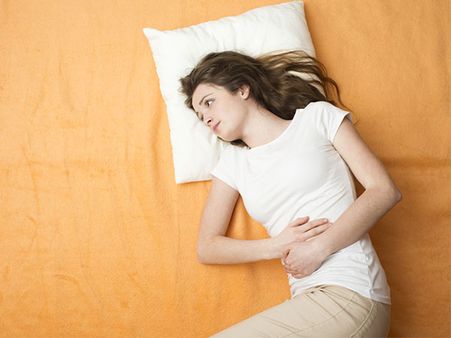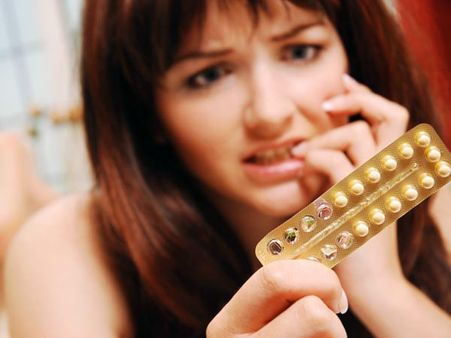Just In
- 7 min ago

- 40 min ago

- 5 hrs ago

- 9 hrs ago

Don't Miss
- Sports
 Who Won Yesterday's IPL Match 33? PBKS vs MI, IPL 2024 on April 17: Mumbai Indians Escape Last-Ditched Fight by Punjab Kings To Win
Who Won Yesterday's IPL Match 33? PBKS vs MI, IPL 2024 on April 17: Mumbai Indians Escape Last-Ditched Fight by Punjab Kings To Win - Movies
 Do Aur Do Pyaar OTT Release Date & Platform: When & Where To Watch Vidya Balan’s Film After Theatrical Run?
Do Aur Do Pyaar OTT Release Date & Platform: When & Where To Watch Vidya Balan’s Film After Theatrical Run? - Finance
 Wipro Q4 Results Preview: Weak Demand Likely To Drag Revenue Sequentially, EBIT Margins Seen Stable
Wipro Q4 Results Preview: Weak Demand Likely To Drag Revenue Sequentially, EBIT Margins Seen Stable - News
 BRS Chief K Chandrasekhar Rao Slams BJP, Says K Kavitha's Arrest Is Vendetta Politics
BRS Chief K Chandrasekhar Rao Slams BJP, Says K Kavitha's Arrest Is Vendetta Politics - Automobiles
 Aprilia RS 457 Accessories: A Detailed Look At The Prices
Aprilia RS 457 Accessories: A Detailed Look At The Prices - Education
 Karnataka SSLC Result 2024 Soon, Know How to Check Through Website, SMS and Digilocker
Karnataka SSLC Result 2024 Soon, Know How to Check Through Website, SMS and Digilocker - Technology
 Nothing Ear, Ear a With ANC, Up to 42.5 Hours of Battery Launched; Check Price and Availability
Nothing Ear, Ear a With ANC, Up to 42.5 Hours of Battery Launched; Check Price and Availability - Travel
Telangana's Waterfall: A Serene Escape Into Nature's Marvels
Is Amenorrhea Treatable? Here Are Interesting Things To Know About This Condition
The absence of menstruation is termed amenorrhoea. There can be many reasons for this - stress, being overweight or underweight, etc. Women should definitely consult a doctor if they have skipped their periods thrice at a stretch as it could be a serious underlying health condition. Also, if girls don't attain their puberty after 15 or 16 years of age they should consider consulting a doctor as it could indicate amenorrhoea.
In this article, we will discuss the types of amenorrhoea, the various causes which lead to this condition, its symptoms, diagnosis and treatment. This condition can be an outcome of natural causes as well as other reasons. Read on to know more.


Types Of Amenorrhoea:
There are two types of amenorrhoea - primary and secondary. If a woman doesn't get her periods past 15 or 16 years of age, it is called primary amenorrhoea, which is caused due to genetic or inborn conditions. If a woman develops this condition after she started menstruating, it is referred to as secondary amenorrhoea.

Symptoms Of Amenorrhoea:
The symptoms of this condition would vary depending on the exact cause behind it. Some of the symptoms that you may observe along with the absence of the menstrual cycle are:
- Pelvic pain
- Acne
- Loss of hair
- Changes in your vision
- Excess growth of facial hair

Causes Of Amenorrhoea:
1. Hormonal causes
- Thyroid related: Ailments like hyperthyroidism and hypothyroidism also cause amenorrhoea. Hyperthyroidism refers to a condition in which thyroid hormones are secreted in your body in excess and hypothyroidism is a situation in which the level of thyroid hormones is low. These hormones are linked with various abnormalities related to the menstrual cycle, amenorrhoea being one.
- PCOS: Polycystic Ovarian Syndrome or PCOS is a common symptom which marks the absence of menstrual cycle in women. The condition triggers hormone production and sustains them instead of the fluctuating hormone levels that go on during a normal menstrual cycle. This ultimately leads to the absence of periods.
- Pituitary tumour: Amenorrhoea can also happen due to the presence of pituitary tumour. A non-cancerous, hormone-secreting tumour called prolactinoma secretes prolactin, which when excess can affect the menstrual cycle directly and cause amenorrhoea.

2. Lifestyle Causes
- Exercising too much: Working out excessively results in the secretion of stress hormones. These hormones can impact to mess with the brain's ability to produce reproductive hormones which intern impacts the menstrual cycle and cause amenorrhoea. Most female athletes suffer from this condition. Overexercising can also elevate your metabolism. This can, in turn, affect the function of your hormones.
- Stress: Women with high stress levels often experience irregular periods. If women remain stressed for long it can cause amenorrhoea, the condition will last until the stress remains. This is because stress can suppress the functioning of the hypothalamus, which controls the pituitary gland. Both these parts of the brain work together in controlling the function of hormones.
- Improper BMI: When your BMI is too low, you might miss a period or two. This is because body fat plays an important role in the production of oestrogen, the insufficiency of which can affect the menstrual cycle. A higher BMI or obese person can also experience hormonal imbalances leading to the absence of periods.

2. Lifestyle Causes:
- Exercising too much: Working out excessively results in the secretion of stress hormones. These hormones can impact to mess with the brain's ability to produce reproductive hormones which in turn impacts the menstrual cycle and cause amenorrhoea. Most female athletes suffer from this condition. Overexercising can also elevate your metabolism. This can, in turn, affect the function of your hormones.
- Stress: Women with high stress levels often experience irregular periods. If women remain stressed for long it can cause amenorrhoea, the condition will last until the stress remains. This is because stress can suppress the functioning of the hypothalamus, which controls the pituitary gland. Both these parts of the brain work together in controlling the function of hormones.
-
Improper
BMI:
When
your
BMI
is
too
low,
you
might
miss
a
period
or
two.
This
is
because
body
fat
plays
an
important
role
in
the
production
of
oestrogen,
the
insufficiency
of
which
can
affect
the
menstrual
cycle.
A
higher
BMI
or
obese
person
can
also
experience
hormonal
imbalances
leading
to
the
absence
of
periods.

3. Structural Causes:
- Intrauterine adhesions: This is also known as Asherman's syndrome and it's a rare condition. People suffering from this syndrome can develop scarring in the uterus. This prevents the normal build-up and shedding of uterine lining or menstruation.
- Disorder in the reproductive organs: In some cases, when the reproductive organs of a woman are not formed fully, the woman will not have normal menstrual cycles.
- Deformed vagina: An imperforate hymen and transverse vaginal septum can obstruct the vagina and may prevent menstrual bleeding.
6 Simple Yet Effective Tips To Control Your Hunger

4. Other Causes:
- Side effects of medications: Birth control shots and hormonal contraceptives, as well as other medications like chemotherapy and antipsychotic drugs, can also trigger amenorrhoea.
- Genetics: One of the causes of amenorrhea is genetics. If someone from a woman's family has suffered from this condition, the woman would be prone to this condition too.

Treatment For Amenorrhoea:
As discussed above there are a number of causes which lead to amenorrhoea, hence the treatment for this condition would differ.
Medications: You can have certain types of birth control pills to normalise your menstrual cycle. Clomiphene citrate (CC) is another medicine women suffering from PCOS can consume, it aids in resurrecting the process of ovulation which halts due to the syndrome and trigger amenorrhea.
Hormonal therapies: Women suffering from hormonal imbalance should undergo oestrogen and progestin hormonal therapy to treat this condition.
Surgery: Surgeries need to be carried out in the case of uterine scarring. A procedure called hysteroscopic resection needs to be done to remove the scar tissues and normalise the menstrual cycle.
-
 insyncHere Is Why Male Office Workers In Japan Are Complaining Of Mentrual Pain!
insyncHere Is Why Male Office Workers In Japan Are Complaining Of Mentrual Pain! -
 healthWhat Is PCOD? Causes, Signs, Risks, Complications, Treatment, Prevention, Diet, and More
healthWhat Is PCOD? Causes, Signs, Risks, Complications, Treatment, Prevention, Diet, and More -
 healthHow Long Can You Wear A Sanitary Napkin? Side Effects, Tips, And More
healthHow Long Can You Wear A Sanitary Napkin? Side Effects, Tips, And More -
 healthEating These 4 Foods Can Worsen Your Periods, Especially If You Have PCOD
healthEating These 4 Foods Can Worsen Your Periods, Especially If You Have PCOD -
 healthDid You Know That Chronic Stress Can Affect Menstruation And Vice Versa?
healthDid You Know That Chronic Stress Can Affect Menstruation And Vice Versa? -
 healthDiscover the Best Yoga Poses for PCOD: Alleviate Symptoms and Improve Menstrual Health!
healthDiscover the Best Yoga Poses for PCOD: Alleviate Symptoms and Improve Menstrual Health! -
 healthWhen Can You Expect Your Child's First Period? When Is It Too Late?
healthWhen Can You Expect Your Child's First Period? When Is It Too Late? -
 healthHow To Take Care Of Yourself During Your Period
healthHow To Take Care Of Yourself During Your Period -
 healthMyths vs Facts: Does Your Period Stop In Water?
healthMyths vs Facts: Does Your Period Stop In Water? -
 healthBreastfeeding And Periods: Is It Okay To Breastfeed Your Baby During Menstruation?
healthBreastfeeding And Periods: Is It Okay To Breastfeed Your Baby During Menstruation? -
 healthA Step Towards Progress: Uttarakhand Couple Celebrates Daughter's First Menstruation, Inspiring Other
healthA Step Towards Progress: Uttarakhand Couple Celebrates Daughter's First Menstruation, Inspiring Other -
 healthMyths vs Facts: Does The Moon Affect Women's Health And Menstrual Cycles?
healthMyths vs Facts: Does The Moon Affect Women's Health And Menstrual Cycles?


 Click it and Unblock the Notifications
Click it and Unblock the Notifications



